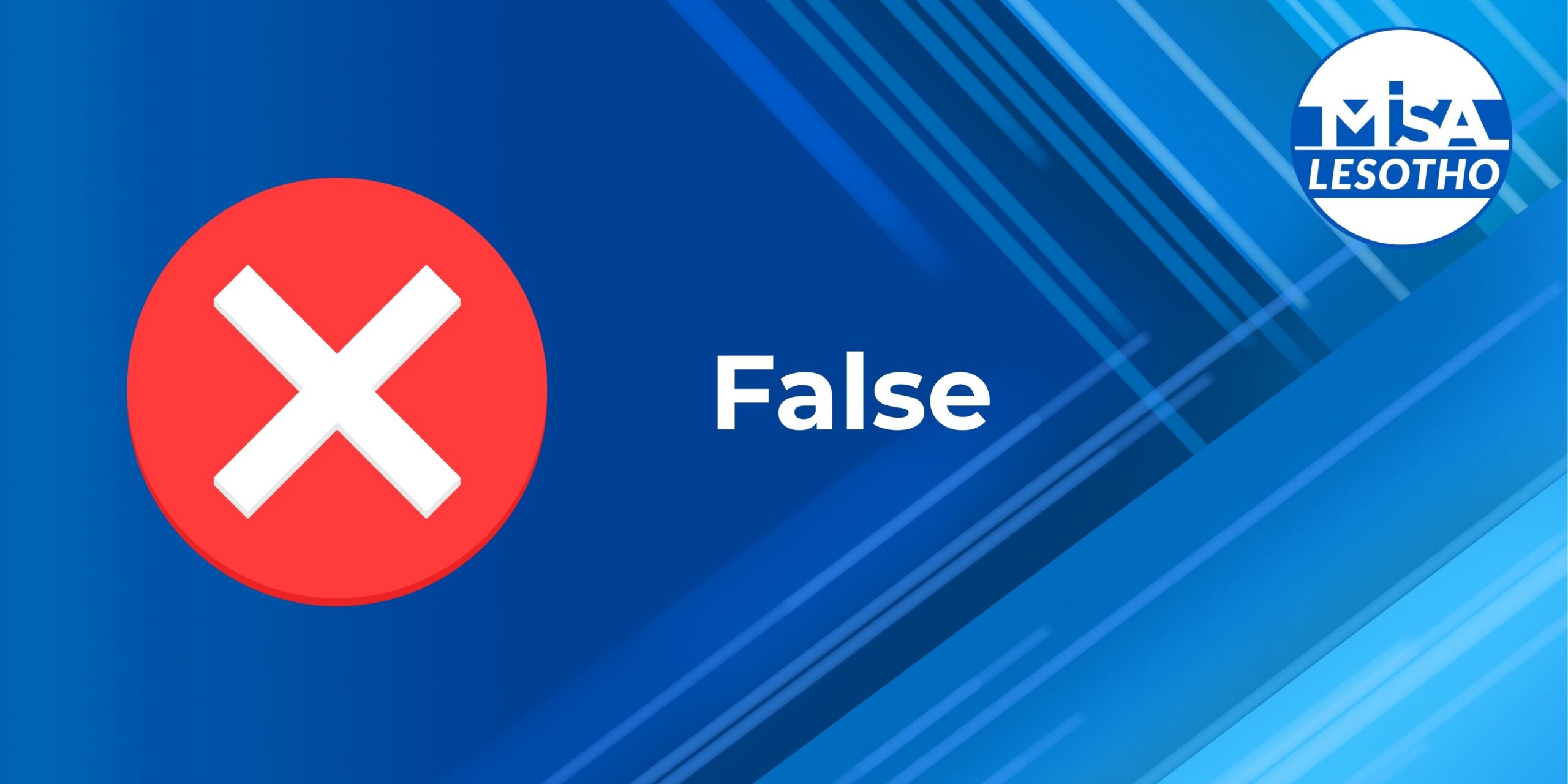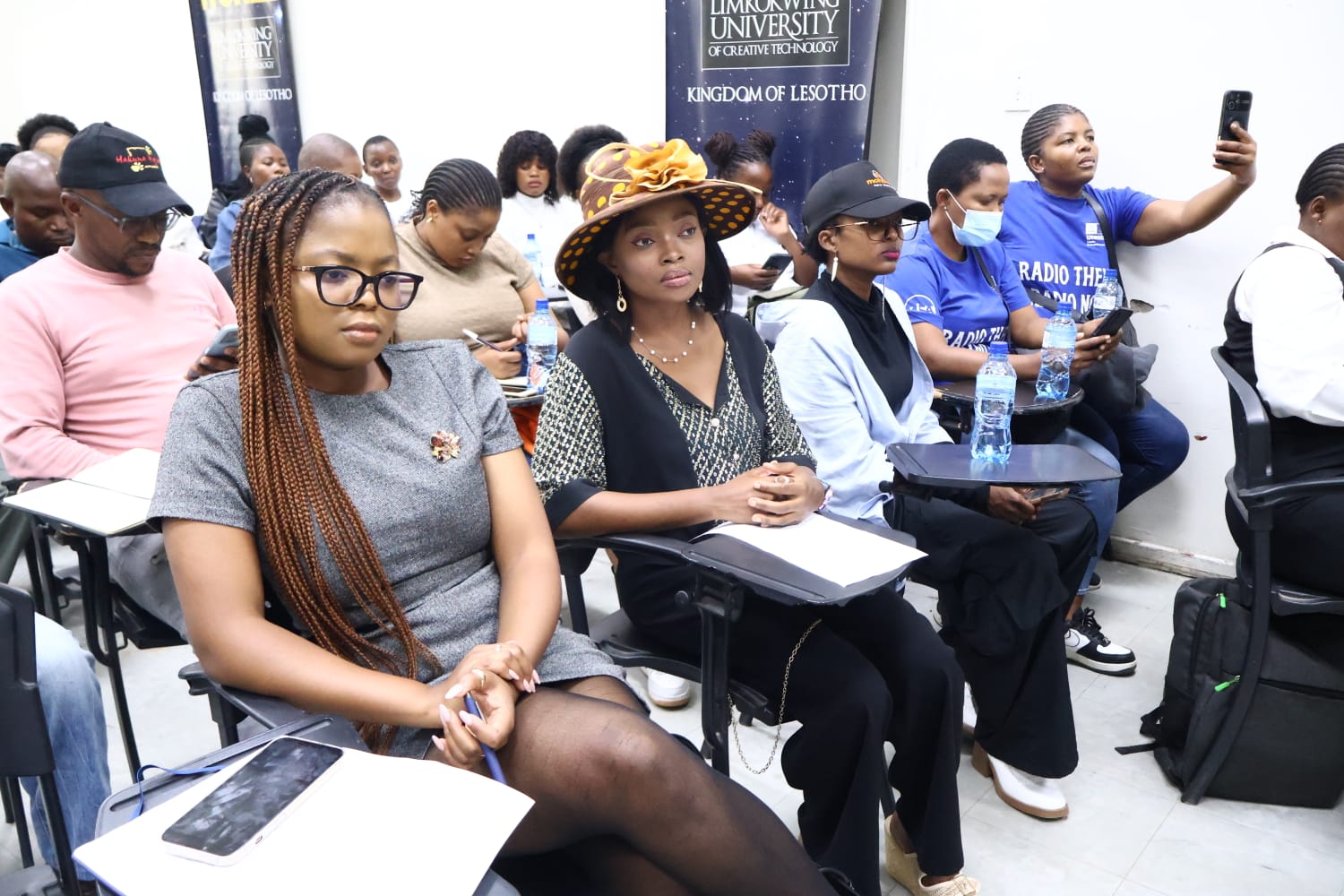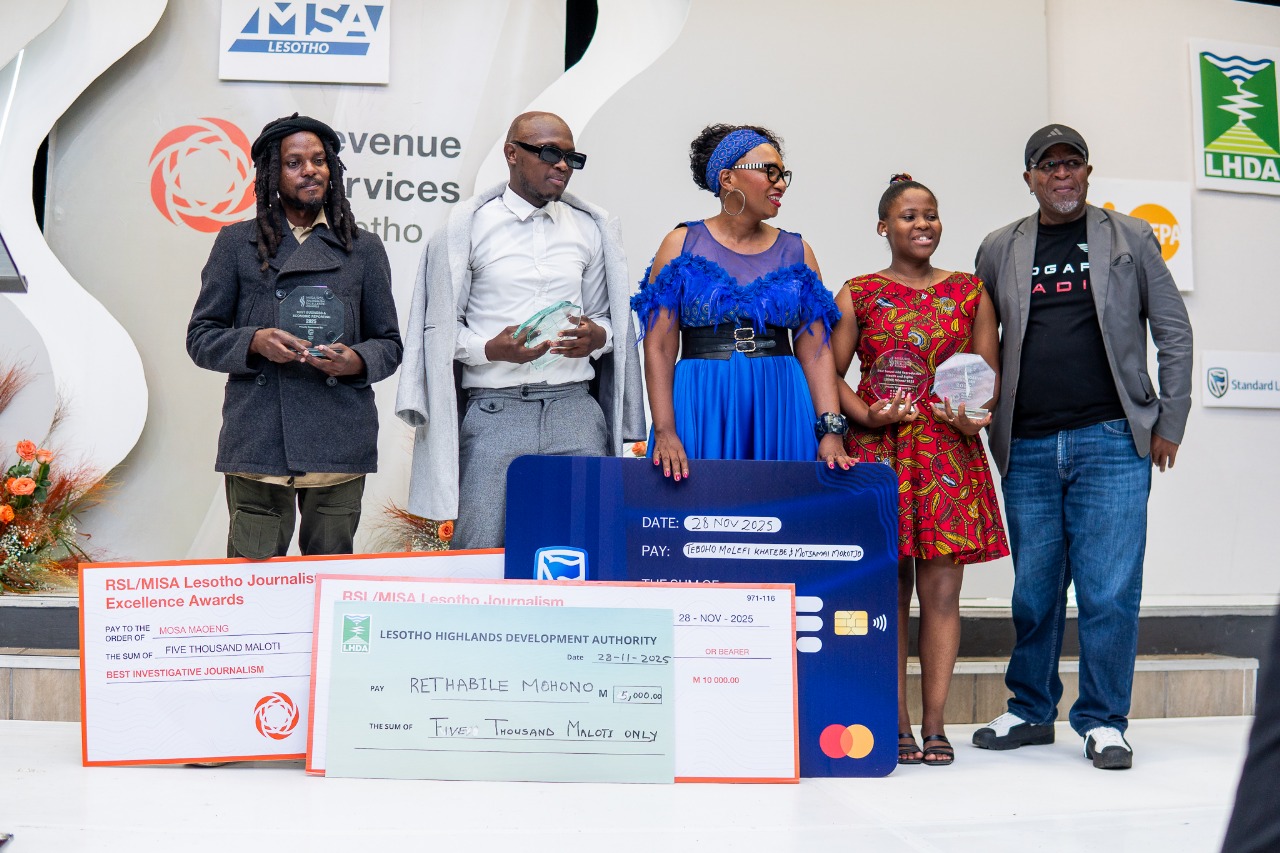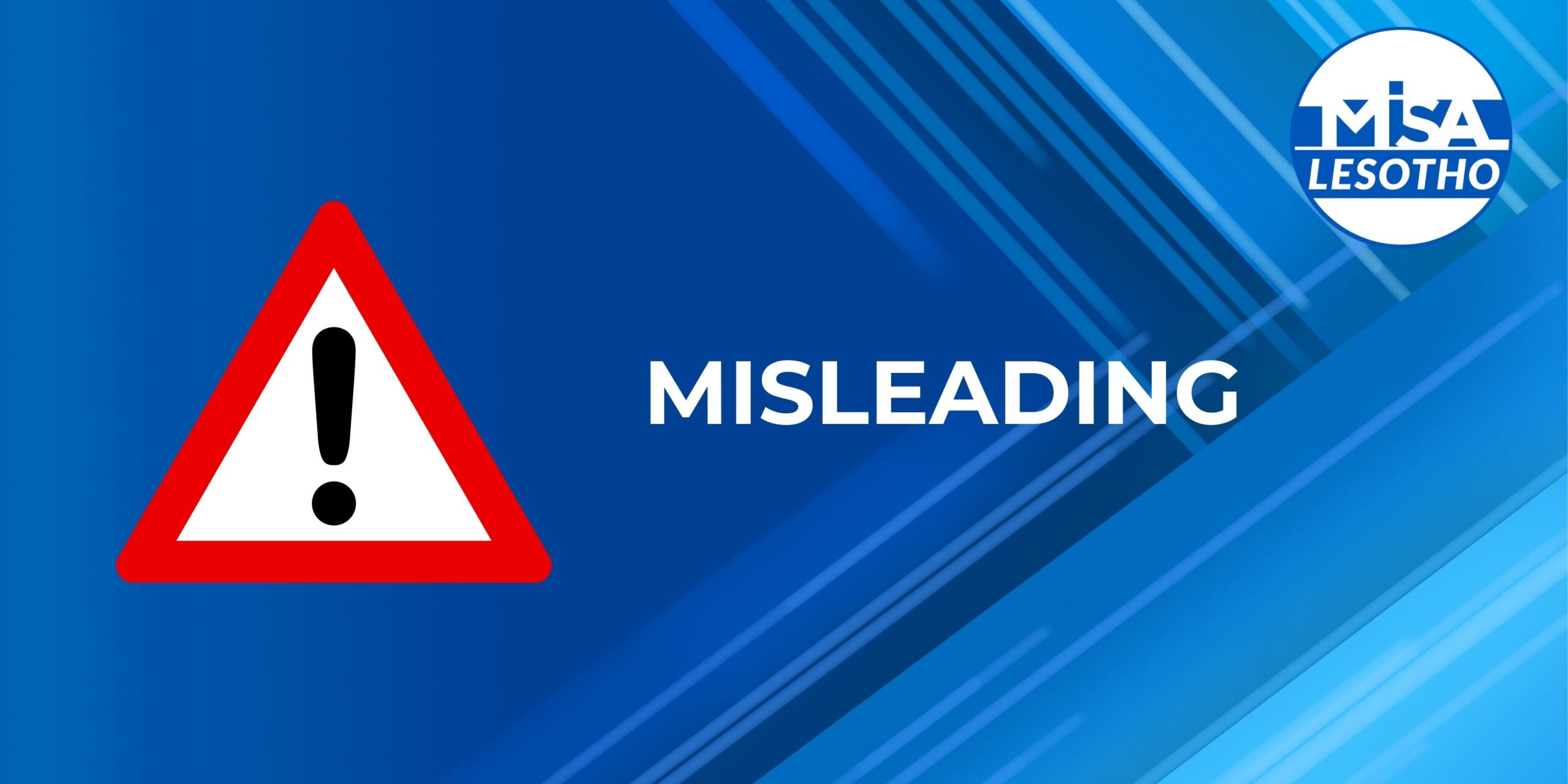Nicole Tau
A Facebook page with 1 million followers, South Africa Daily, on 6 June 2025 shared a video claiming it showed ‘Lesotho citizens trying to cross borders to South Africa.’ The footage depicts hundreds of people pressed against each other, suggesting mass exodus from Lesotho, and igniting alarm about migration crises.
Within hours, the post had been shared over 500 times, stoking fears of a humanitarian crisis on a South African doorstep. However, the claim is false.
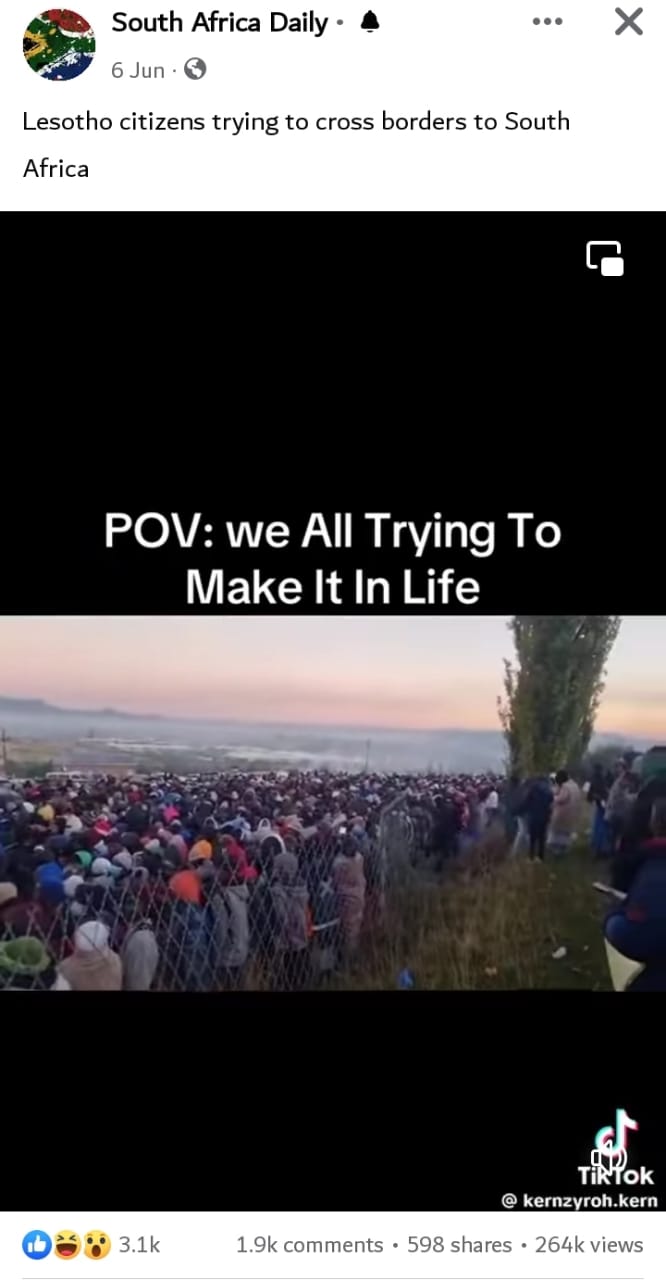
In a country grappling with over 39% youth unemployment, scenes of desperate crowds instantly resonate. From the responses to the video, there is an assumption that they are fleeing economic hardship, reinforcing existing anxieties about migration pressures.
A Google reverse‑image search of key frames from the viral footage, initially surfaced public posts by Facebook users sharing still images from the Makoanyane Barracks recruitment site. Those posts led to the Lesotho Defence Force’s official Facebook page, where the complete video, titled “LDF Recruitment Interview in Progress (Maseru Makoanyane Barracks)” and dated 31 May 2025 was located. A frame‑by‑frame comparison confirmed it was the identical clip from the recruitment exercise, not footage of a border crossing.
The search also brought up the original Tik Tok video of the viral clip.
It was established that the original clip appeared on TikTok user @kernzyroh.kern’s account on 31 May 2025. It was shared with the text “We all trying to make it in life” and hashtags such as #lesothotiktok and #strugglesarereal, with no hint that it depicts a border crossing.
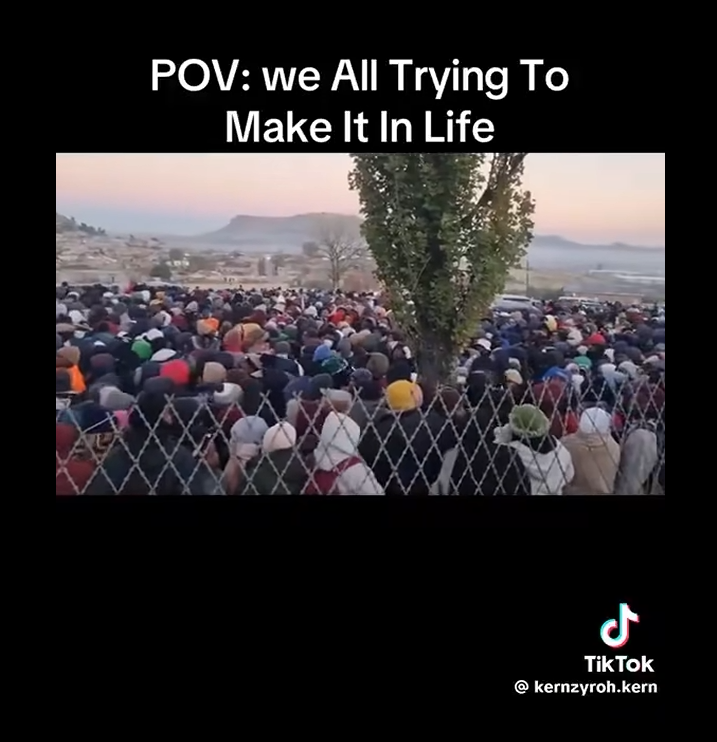
Image of the Tik Tok Video posted by @kernzyroh.kern
Notably, on the same day, there was a widely publicised recruitment exercise by the Lesotho Defence Forces (LDF) which typically attracts hundreds of youths, which confirms our earlier findings from the official LDF Facebook page.
This authoritative source places the scene inside the army’s recruitment grounds, not the border.
Moreover, visual details from the TikTok video cross-referenced against the Lesotho Defence Force’s livestream confirmed that both clips depict the recruitment exercise.
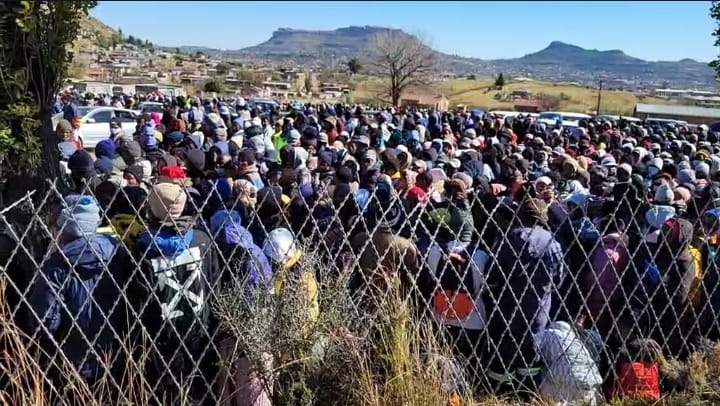
Image from the LDF Recruitment site (Makoanyane Barracks)
Further corroborating this context, The Lesotho Times’ article “High youth unemployment: a ticking time bomb,” reported on 2 June 2025 that more than 2,000 young Basotho had gathered at Makoanyane Barracks for only 500 available LDF vacancies. The article’s photographs of identical fencing and interview booths match the viral footage frame for frame, confirming the scene’s true context.
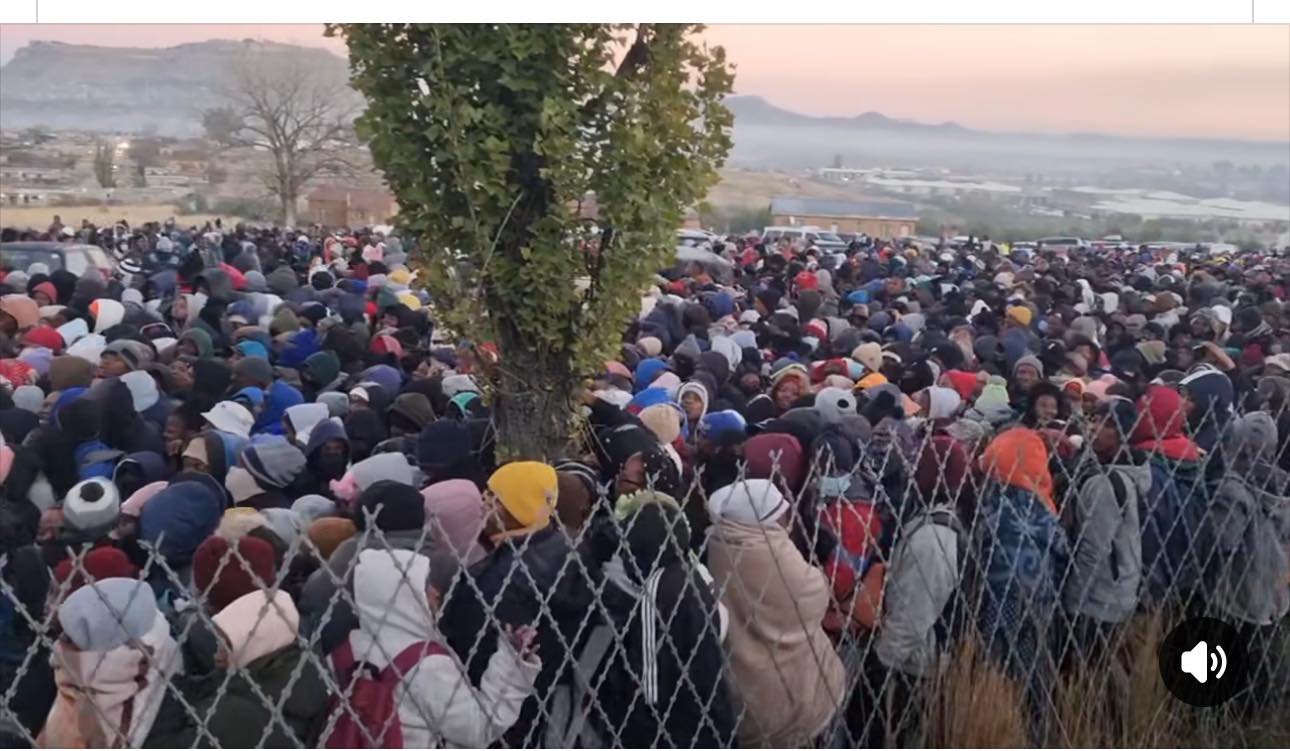
Image cred: Lesotho Times Newspaper
Misrepresenting recruitment queues as mass migration stokes unwarranted fear in host communities, risks xenophobic backlash, and distracts from critical issues, especially Lesotho’s soaring youth unemployment. When popular pages spread misinformation without correction, public trust in social media as a reliable news source erodes, undermining the effectiveness of genuine alerts.
By clarifying the true context, we help steer public attention toward meaningful policy debates, like expanding job prospects, instead of chasing viral misinformation.
This fact-check was produced by Nicole Tau, CheckDesk, MISA Lesotho, as part of the African Fact-Checking Alliance’s (AFCA) incubation programme. It was produced with peer-mentorship from Code for Africa’s fact-checking initiative, PesaCheck, with financial support from Norway. AFCA mentorship respects the journalistic independence of the researchers, offering access to advanced techniques and tools. Editorial decision-making remains with MISA Lesotho. Want to learn more? Visit: https://factcheck.africa/




